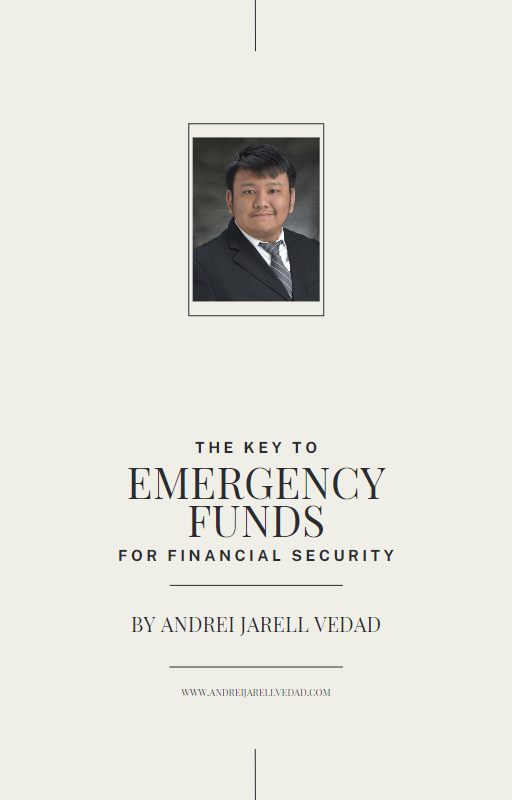
As a college student, it’s easy to get caught up in the excitement of new experiences and new friends. However, it’s essential to remember that college is also a time to lay the groundwork for your future financial stability. Budgeting is a crucial part of that foundation, and it’s particularly important for college students in the Philippines. With rising tuition costs, expenses for textbooks, transportation, and housing, budgeting can help students manage their finances and avoid debt. In this article, we will explore why budgeting is vital for college students in the Philippines and provide practical tips for creating a budget plan.
Table of Contents
Understanding your finances as a college student
As a college student in the Philippines, understanding your finances is crucial to ensure that you can sustain yourself while pursuing your academic goals. This involves identifying your sources of income, understanding your expenses, and creating a budget plan that can help you manage your finances effectively.
Identifying sources of income
The first step in understanding your finances as a college student is to identify your sources of income. This may include allowances from your parents or guardians, scholarships, part-time jobs, or freelance work. By knowing how much money you have coming in, you can make informed decisions about your expenses and prioritize accordingly.
Understanding expenses and how to prioritize them
Next, it is essential to understand your expenses and how to prioritize them. As a college student, you may have various expenses, such as tuition fees, textbooks, accommodation, transportation, and personal expenses. Prioritizing your expenses can help you allocate your funds more efficiently, ensuring that you have enough money for your basic needs and other expenses.
Creating a budget plan
To manage your finances effectively, creating a budget plan is essential. This plan can help you track your income and expenses, identify areas where you can cut costs, and plan for future expenses. You can use various budgeting tools, such as spreadsheets, apps, or online tools, to create a budget plan that works for you.
Overall, understanding your finances as a college student is vital to ensure that you can manage your money effectively while pursuing your academic goals. By identifying your sources of income, understanding your expenses, and creating a budget plan, you can take control of your finances and make informed decisions that can set you up for success in the future.
You can read more about budgeting and money management by reading my other blog posts:
- Budgeting 101: How to Create a Personal Budget that Works for You
- Money Management Made Easy: Why You Need Separate Budget Accounts
- Smart Habits That Helps You Save Money
- How To Save Money On A Tight Budget
- Frugal Living Tips For Filipinos
Budgeting tips for college students in the Philippines
As a college student in the Philippines, managing your finances can be a challenging task. While the cost of education, housing, and other expenses continues to rise, it is essential to learn how to budget and save money. With the right strategies, you can minimize your expenses and make the most of your limited resources.
Here are some budgeting tips for college students in the Philippines:
Cut down on unnecessary expenses
To save money, it is essential to avoid unnecessary expenses such as eating out, buying expensive clothes or gadgets, or spending money on entertainment. Instead, focus on essential expenses such as education, rent, utilities, and transportation.
Meal planning and grocery shopping tips
One of the most significant expenses for college students is food. To save money, consider meal planning and grocery shopping. Make a list of the things you need and stick to it when you go to the grocery store. This can help you avoid impulse buying and save money in the long run.
Utilizing student discounts and promotions
Many businesses and stores offer discounts and promotions for students. Be sure to take advantage of these offers to save money on your purchases.
Avoiding credit card debt
Credit cards can be a useful financial tool, but they can also lead to debt if not used responsibly. It is crucial to avoid carrying a balance on your credit card and to pay it off in full each month.
Finding part-time jobs or freelance opportunities
Another way to make extra money is to find part-time jobs or freelance opportunities. Look for job postings online or in your local area. There are many opportunities for students to earn money while studying.
By following these budgeting tips, you can manage your finances better and make the most of your college experience. Remember, every little bit counts, and small savings can add up over time. With a little effort and planning, you can achieve your financial goals while still enjoying your college life.
Here are some of my blog posts about increasing your income:
- Passive Income Ideas For Filipinos
- 10 Profitable Small Business Ideas for Filipinos in 2023
- 10 Lucrative Side Hustles You Can Start from Home Today
Managing debts as a college student
Managing debts can be a daunting task for college students in the Philippines, especially if they are not equipped with the right knowledge and skills. However, with careful planning and strategic actions, it is possible to overcome debt and regain financial stability. Here are some tips to help you manage your debts as a college student:
Understanding the consequences of debt
One of the first steps to managing debt is understanding the consequences that come with it. Debt can lead to a negative impact on your credit score, making it difficult for you to access loans and other forms of credit in the future. Failure to pay off debt can also result in legal actions such as wage garnishments and debt collections. By understanding the potential consequences, you can develop a sense of urgency to pay off your debts.
Strategies for paying off student loans
If you have student loans, it is essential to create a repayment plan that works for your budget. You can start by identifying your loan’s interest rate and choosing a repayment plan that fits your financial situation. You may also consider refinancing your loans to lower your interest rates or consolidating them to simplify your payments. It is crucial to make timely payments and avoid defaulting on your loans.
Negotiating with creditors
If you have other types of debt, such as credit card debt, it may be possible to negotiate with your creditors to lower your interest rates or monthly payments. Be prepared to provide evidence of your financial situation and demonstrate your willingness to pay off your debts. Negotiating with creditors can be a useful strategy to reduce your debt burden and improve your financial standing.
Seeking financial assistance
In some cases, managing debt may require seeking financial assistance from experts. There are various financial aid programs available to college students in the Philippines that can help them pay off their debts or provide them with additional resources to manage their finances. You may also consider seeking advice from a financial advisor or credit counselor, who can help you create a personalized debt management plan.
Managing debt as a college student in the Philippines requires discipline, patience, and strategic planning. By understanding the consequences of debt, creating a repayment plan, negotiating with creditors, and seeking financial assistance, you can take control of your debt and achieve financial stability. Remember that managing debt is a process that takes time and effort, but with persistence and determination, you can overcome debt and achieve your financial goals.
You can read more about debt by reading my other blog posts:
Investing in your future as a college student
Investing in your future as a college student is a crucial step in securing your financial stability and independence. The earlier you start planning and setting goals, the better off you’ll be in the long run. Here are some tips to get you started:
Setting Financial Goals
Before you start investing, it’s important to identify your financial goals. Think about what you want to achieve in the short-term and long-term, such as saving for a down payment on a house or paying off student loans. By setting realistic financial goals, you’ll have a better understanding of how much money you need to save and invest.
Saving for Emergencies and Future Expenses
Unexpected expenses can quickly drain your savings and put you in a difficult financial position. That’s why it’s important to have an emergency fund to cover unexpected expenses like car repairs, medical bills, or job loss. Aim to save at least three to six months’ worth of living expenses. Additionally, start saving for future expenses like a down payment on a home, a new car, or a big trip.
Understanding Different Investment Options
As a college student, you may not have a lot of money to invest, but that doesn’t mean you should avoid investing altogether. There are many investment options available, such as stocks, bonds, mutual funds, and exchange-traded funds (ETFs). Each option has its own benefits and risks, so it’s important to do your research and understand what you’re investing in.
Building Good Credit
Building good credit is an important step in securing your financial future. Having good credit will make it easier for you to get approved for loans, credit cards, and other forms of credit. To build good credit, pay your bills on time, keep your credit utilization low, and avoid opening too many new credit accounts at once.
Investing in your future as a college student requires careful planning, discipline, and patience. By setting financial goals, saving for emergencies and future expenses, understanding different investment options, and building good credit, you can create a solid foundation for your financial future. Remember, it’s never too early to start investing in yourself and your financial well-being.
Conclusion
Budgeting is a crucial skill that every college student in the Philippines should develop. It allows them to take control of their finances, avoid debt, and plan for their future. To achieve financial stability, students must identify their sources of income, understand their expenses, and create a budget plan. Additionally, students can implement various budgeting tips such as cutting down on unnecessary expenses, meal planning, utilizing student discounts and promotions, avoiding credit card debt, and finding part-time jobs or freelance opportunities.
Managing debts is also an essential part of budgeting, and students must understand the consequences of debt, strategies for paying off student loans, negotiating with creditors, and seeking financial assistance. Furthermore, investing in their future can help students achieve their financial goals by setting financial goals, saving for emergencies and future expenses, understanding different investment options, and building good credit.
It is vital to keep in mind that budgeting is a continuous process that requires discipline, patience, and commitment. By implementing the tips and strategies shared in this post, college students in the Philippines can achieve financial freedom and secure their future. So, take action and start budgeting today!
Relevant Blog Posts
Here are some relevant blog posts that you can read after this one:
- The Key To Emergency Funds For Financial Security
- Ways To Secure Your Finances Right Now
- Building An Emergency Fund On A Low Income
- How To Stay Motivated To Achieve Your Financial Goals
- Budgeting For College Students in the Philippines
- How To Save Money On A Tight Budget
- 10 Lucrative Side Hustles You Can Start from Home Today
- 10 Profitable Small Business Ideas for Filipinos in 2023
- Passive Income Ideas For Filipinos
- Frugal Living Tips For Filipinos
- Smart Habits That Helps You Save Money
- Get Debt-Free: Expert Tips and Tricks to Pay Off Your Debts
- Money Management Made Easy: Why You Need Separate Budget Accounts
- Budgeting 101: How to Create a Personal Budget that Works for You
I hope these blog posts are useful and informative to you.
For Your Reference
Budgeting
For your reference, you can read these blog articles relevant to budgeting:
- What Is Financial Literacy?
- Budgeting When You’re Broke
- The Beauty of Budgeting
- 5 Rules to Improve Your Financial Health
- Calculate Your Debt-to-Income Ratio
- 8 Financial Tips for Young Adults
- 5 Signs That You’re Living Beyond Your Means
- 4 Easy Budgeting Techniques
- 3 Common Budgeting Challenges to Overcome
- Zero-Based Budgeting: Benefits and Drawbacks
- Best Budgeting Apps
- What Is a Budget? Plus 10 Budgeting Myths Holding You Back
- Basic Budgeting Tips Everyone Should Know
- Budgeting Basics To Help You Manage Your Money
- Understanding Budgeting & Personal Finance
- 5 Simple Budgeting Guidelines to Follow
- The 50/30/20 Rule of Thumb for Budgeting
- Strategies for Budgeting and Saving Money
- Different Budgeting Techniques to Try
- Understanding Budgeting & Personal Finance
- Budgeting for Kids: How To Teach It and Why It Matters
- Budgeting for Teens: What You Need to Know
- 10 Budgeting Pitfalls and How to Avoid Them
Debt
For your reference, you can read these blog articles relevant to debt:
- What Is Debt?
- Student Loan Debt vs. Credit Card Debt
- Good Debt vs. Bad Debt: What’s the Difference?
- A Step-by-Step Guide To Getting Out of Debt
- Choose the Debt Payoff Strategy That’s Right for You
- A Guide to Debt Settlement
- 12 Tips for Sticking to Your Debt Payoff Plan
- 6 Steps to Get Out of Debt
- How to Pay Off Credit Card Debt
- What Is the Debt Avalanche Strategy?
- What Is Debt Consolidation?
- What Is a Debt Repayment Plan?
- How to Create a Debt Elimination Plan
- Debt Avalanche vs. Debt Snowball: What’s the Difference?
- Debt Settlement: Cheapest Way to Get Out of Debt?
Emergency Funds
- Why an Emergency Fund Is More Important Than Ever
- How to Build an Emergency Fund
- The best protection against bad trouble is good planning
- How Much Cash Should I Keep in the Bank?
- Emergency Funds
- 8 Reasons You Need an Emergency Fund
- What Amount Do Retirees Need in an Emergency Fund?
- How To Use Your Emergency Fund and Make It Last
- Rule of Thumb: How Big Should Your Emergency Fund Be?
- When to Use Your Emergency Fund
- Rainy Day Fund vs. Emergency Fund – Do You Need Both?
- It’s Time to Build a Better Emergency Fund
- How to Prepare Your Emergency Fund
- Emergency Cash Reserves
- 7 Tips for Building an Emergency Fund
Disclaimer
I am not a financial advisor. Please note that the information provided on this website is for general informational purposes only and should not be considered as financial advice.
While I strive to ensure the accuracy and timeliness of the information presented, financial situations can vary, and the content may not be applicable to everyone. Therefore, it is essential to consult with a qualified financial professional or advisor before making any financial decisions.
It is important to understand that investing and financial planning involve risks, and there are no guarantees of specific outcomes or returns.
By accessing this website or engaging in consultations, you acknowledge and agree that any actions taken based on the information provided are at your own risk, and I shall not be held liable for any direct or indirect consequences arising from such actions.
Get My E-books For Free!


Take control of your financial future and download my e-books: “Ways to Secure Your Finances Right Now” and “The Key To Emergency Funds For Financial Security” today! This comprehensive guides are packed with practical strategies and expert advice to help you achieve financial security and improve your financial literacy.
By subscribing to my Substack Newsletter, you’ll gain access to exclusive content, regular updates, and valuable insights on personal finance. You’ll stay informed about the latest financial trends, investment opportunities, and money-saving tips.
Don’t miss out on this opportunity to equip yourself with the knowledge and tools needed to secure your financial future. Join our community of motivated individuals who are committed to achieving financial freedom and success.
Subscribe to my Substack Newsletter today and get instant access to the e-book “Ways to Secure Your Finances Right Now.” Take the first step towards a brighter financial future. Your journey to financial security starts now!
Affiliate Links Disclaimer
My blog posts contain referral/affiliate links, so I can potentially earn via commission. It would help me a lot when you use my referral/affiliate links

Andrei Jarell Vedad is a passionate financial literacy advocate from the Philippines. With a background in Information Technology and currently pursuing a law degree, Andrei combines his knowledge and expertise to empower individuals in managing their personal finances. Through his blog and extensive research, he shares practical tips, strategies, and thought-provoking articles to help readers make informed financial decisions and achieve their financial goals. With a global perspective, Andrei aims to inspire positive change and foster financial well-being, not only in the Philippines but also worldwide.


